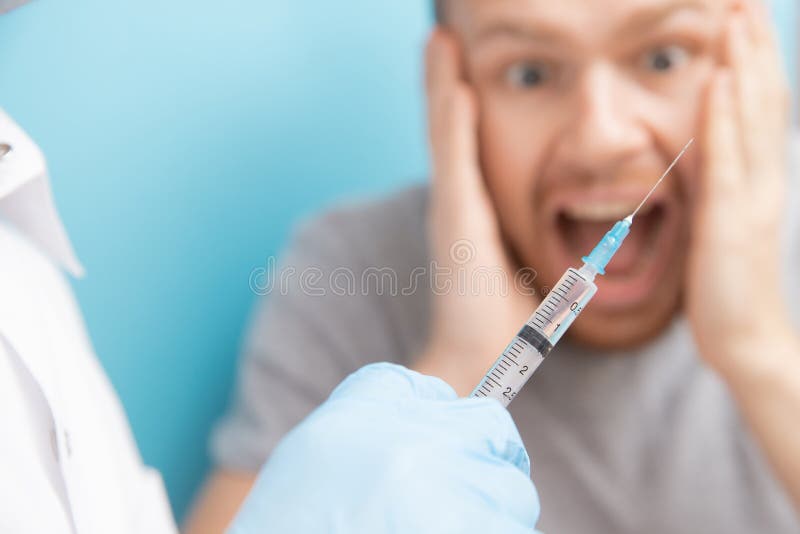Phobia is an exaggerated, usually inexplicable and illogical fear of a particular object, a class of objects, or situations. According to Merriam Webster English Dictionary, a phobia is a psychological term for irrational or obsessive fear. There are unusual phobias in our world today; these include:
Xerophobia -the fear of dryness
Claustrophobia -the fear of confined spaces,
Ideophobia -the fear of ideas,
Aichmophobia -the fear of sharp objects,
Haphephobia -fear of being touched,
Anthropophobia -fear of social circles, and so on.
Trypanophobia, which is the phobia to be addressed, is also an unusual phobia that is also known as needle phobia. The fear of needles can spark adverse changes in the body of the sufferer at the sight of needles, and disastrous outcomes may occur if he or she is forcefully injected with needles. This poses serious obstacles to medical treatment as a significant portion of these people would rather die than receive a needle puncture. Hence, they tend to avoid medical care because of their fear, giving their illnesses much more time to worsen. Needle phobia, the extreme fear of medical procedures that involves injections or hypodermic needles, can cause sufferers to avoid getting vaccinated against the pandemic virus, COVID-19; this doesn’t only predispose them to contract the virus but also endangers the people around them. Trypanophobia can elicit responses such as these in the sufferers:
- Fear or anxiety
- Panic attacks, nausea or sweats
- Hypertension
- Rapid heart rate or palpitations that expose them to arrhythmias and other cardiac episodes.
- Insomnia in the days or weeks before an expected needle stick
- Fainting

Not only are the symptoms themselves harmful to the individuals, but the fear associated with doctors, nurses and other medical professionals can and often does prevent people from seeking treatment for any number of serious ailments.
The fear of needles may be considered to simply be an emotional response to a childhood fear rather than a serious illness; it could have a variety of factors including genetics and family history as an estimated 80percent of adults with the condition reported to have first-degree relative suffering from the same phobia.
OTHER FACTORS THAT MAY CAUSE TRYPANOPHOBIA ARE:
Evolutionary influence
Some evolutionary psychologists believe that fear may be rooted in an ancient survival technique. It is possible that the fear of puncturing the skin is an evolutionary adaptation.
Traumatic experiences with needles
Research has found that needle phobias tend to be popular among people who have had chronic conditions that require injections. Children can learn from their parents who show fear of needles.
Vasovagal reflex
This response to the sight of needles or being pierced by a needle triggers a sudden drop in blood pressure that leads to dizziness and fainting.
COPING MECHANISM FOR SUFFERERS
Cognitive behavioural therapy can also be highly effective in treating Trypanophobia. Some experts have also found success using hypnotherapy with their patients. Counter-conditioning is mostly used, and this involves asking the person to envision a needle, then progressing to show the person a needle and ultimately moving towards getting the person to accept needles for medical treatment.
Selective serotonin reuptake inhibitors and other related medications may sometimes be prescribed to help decrease anxiety. Benzodiazepines can be in the short term to relieve acute anxiety symptoms. Self-help strategies that can help one cope with needle phobia include relaxation strategies such as deep breathing, visualization, and progressive muscle relaxation. Meditation and mindfulness practices have also been found to be helpful.
Zainab Aderohunmu
